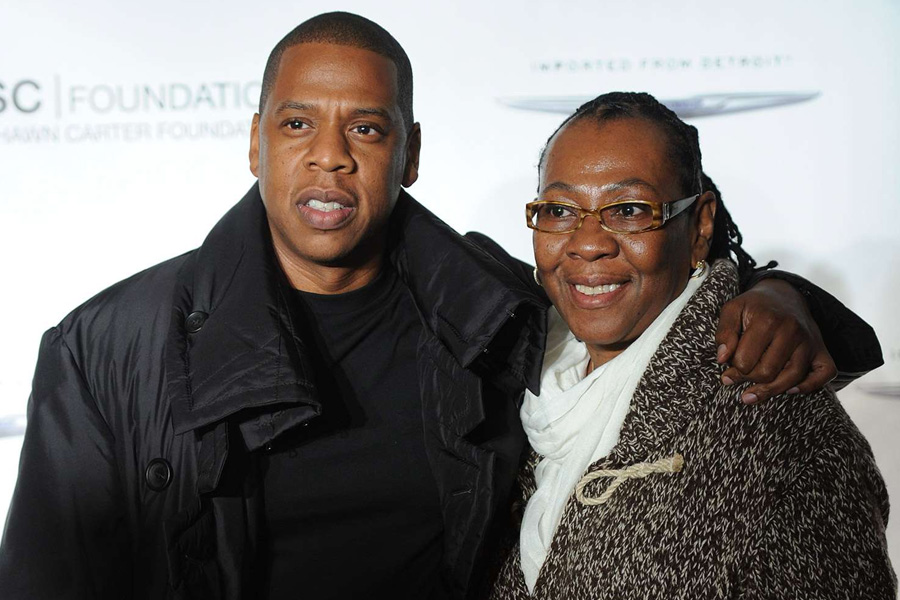Basic Information
| Field | Details |
|---|---|
| Full Name | Adnis “AJ” Reeves |
| Also Known As | AJ; referenced by name in Jay‑Z’s lyrics |
| Identity | Biological father of Shawn “Jay‑Z” Carter |
| Nationality | American |
| Born | Not publicly confirmed in major press |
| Died | June 2003 |
| Reported Cause of Death | Liver disease |
| Partner | Gloria Carter (longtime partner and mother of his children) |
| Children | Eric Carter; Andrea (Annie) Carter; Michelle (Mickey) Carter; Shawn “Jay‑Z” Carter (b. 1969) |
| Public Profile | Private individual; known publicly through family narratives and music |
| Notable Cultural Reference | “Adnis,” a bonus track associated with Jay‑Z’s 4:44 era (2017) |
Early Life and Identity
Adnis “AJ” Reeves occupies an unusual place in modern pop culture: a private man who became publicly known through the art and words of his son. He is best recognized as the biological father of Shawn Corey Carter—Jay‑Z—born December 4, 1969. Much of what the world understands about Reeves comes filtered through family recollection, interviews, and the storytelling of hip‑hop: he is the absent father whose silhouette stands in the background of Jay‑Z’s formative years, the man Jay‑Z later confronted, forgave, and elegized.
Public records and mainstream profiles do not establish a definitive birth date for Reeves, and he was not a public figure with a press‑tracked résumé. Genealogy databases list multiple individuals named “Adnis Reeves,” including an older Adnis D. Reeves (1913–1988), suggesting repeated use of the name across generations. Because those entries vary and sometimes conflict, they are best read as breadcrumbs rather than proclamations.
Family and Relationships
Reeves’s most enduring story is familial. He was the longtime partner of Gloria Carter in Brooklyn in the late 1960s and 1970s. Together they had four children: Eric, Andrea (often called Annie), Michelle (nicknamed Mickey), and the youngest, Shawn. When Shawn was about eleven, Reeves left the family. The absence hardened into myth, then into lyric. Yet, years later, shortly before Reeves’s death in June 2003, father and son reconciled—an emotional hinge Jay‑Z would revisit in music and interviews as a study in forgiveness.
The core family members and how they connect to Reeves are summarized below.
Family at a Glance
| Name | Relationship to Adnis Reeves | Notes |
|---|---|---|
| Gloria Carter | Partner | Mother of Eric, Andrea, Michelle, and Shawn (Jay‑Z) |
| Eric Carter | Son | Older brother of Jay‑Z; raised by Gloria after Adnis left |
| Andrea (Annie) Carter | Daughter | Older sister of Jay‑Z |
| Michelle (Mickey) Carter | Daughter | Older sister of Jay‑Z |
| Shawn “Jay‑Z” Carter | Son | Born 1969; artist and entrepreneur; reconciled with Adnis before 2003 |
| Adnis D. Reeves (1913–1988) | Earlier generation with same name | Appears in genealogical records; not publicly confirmed as direct ancestor |
In public retellings, it’s the mother‑son dyad—Gloria and Shawn—who carry the family’s day‑to‑day narrative. Reeves’s role is the rupture and, eventually, the attempt at repair. That arc—absent father, wounded son, late‑life reckoning—became a major motif in Jay‑Z’s lyrics, especially in the 2010s, when reflection turned into art.
Career and Public Life
There is no widely documented professional career for Adnis Reeves. He wasn’t a public performer, business mogul, or a figure regularly quoted in newspapers. Instead, media accounts tie his life to intimate family challenges: grief following a family tragedy, heavy drinking, and estrangement that set the stage for a long season of silence. Later, the brief reunion with his son—a kind of emotional ceasefire—preceded his death in 2003, reportedly from liver disease.
In that sense, Reeves’s public life is an absence, a negative space. Journalists, fans, and casual listeners met him through Jay‑Z’s words. The public portrait of Adnis is thus made of fragments—vivid but incomplete.
Key Dates and Milestones
| Year | Event |
|---|---|
| 1969 | Birth of Shawn Corey Carter (Jay‑Z), the youngest child of Gloria Carter and Adnis Reeves |
| Late 1970s–Early 1980s | Reeves leaves the family when Jay‑Z is around 11 |
| 2003 (June) | Reeves dies; father and son had reconciled shortly beforehand |
| 2017 | Jay‑Z releases “Adnis” as part of the 4:44 era, renewing public interest in Reeves |
In Music and Culture
Few private figures are immortalized in rap with the specificity granted to Adnis Reeves. He lives inside verse as both wound and salve—first the void a child cannot fill, then the lesson that forgiveness is a labor. Jay‑Z’s catalog documents this evolution, turning biographical fact into a kind of lyrical memoir. The 2017 track “Adnis,” composed as a letter to his father, is particularly stark. It reads like a folded note discovered years late: weary, tender, still astonished by the damage and the absolution wrapped around it.
As Jay‑Z’s stature grew, so did curiosity about the man behind the myth. Coverage surrounding 4:44 revisited the story of estrangement and return, positioning Reeves not just as a person but as a theme—a prism for exploring masculinity, family, grief, and the burdens sons inherit.
The Emotional Arc: Absence, Reckoning, Forgiveness
The Carter family lived without Reeves daily. Gloria Carter kept the centre while four Brooklyn public housing children grew up. The youngest son turned to language, hustle, music, and empire in that crucible. Despite winning plaudits, the father-son story remained unresolved. Reconciliation was a little epilogue before the final page. Reeves’s June 2003 death ended the biographical cycle but not the emotional one. Years later, Jay-Z revealed in songs and interviews that he had released bitterness he had been holding onto for years.
The tale is familiar and yet singular: a private man’s choices ripple outward to shape a cultural giant. In this way, Adnis Reeves is a reminder that even the most public success stories are braided to private histories we rarely see.
Records, Names, and What We Can—and Can’t—Know
Because Reeves kept a low profile, public records are scarce. Genealogical databases list several 20th-century “Adnis Reeves” entries, including an older Adnis D. While some entries match Jay-Z’s father’s middle initials and dates, some do not. Researchers risk conjecture if they step in the wrong place with the shared name across generations. Family bonds, the 2003 death, and reconciliation remain solid. From fragments—passports without stamps—archivists and family historians do the rest.
FAQ
Who was Adnis Reeves?
He was the biological father of Shawn “Jay‑Z” Carter and longtime partner of Gloria Carter.
When did Adnis Reeves die?
He died in June 2003, shortly after reconciling with his son.
What was the reported cause of death?
It was reported as liver disease.
Did he and Jay‑Z reconcile?
Yes, father and son reconciled late in Reeves’s life, not long before his death.
Why is he often mentioned in Jay‑Z’s music?
His absence and later reconciliation became central themes in Jay‑Z’s lyrics about family, forgiveness, and identity.
What is the song “Adnis” about?
It’s a letter‑style track in which Jay‑Z addresses his father directly, reflecting on pain, regret, and grace.
Did Adnis Reeves have a public career?
No, he was a private individual; his life is known publicly mainly through family accounts and music.
Are his birth details publicly confirmed?
Major press profiles do not confirm an exact birth date, and genealogical records contain conflicting entries.



